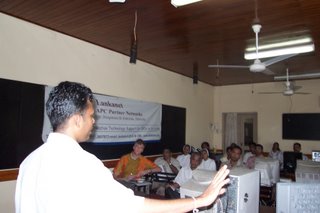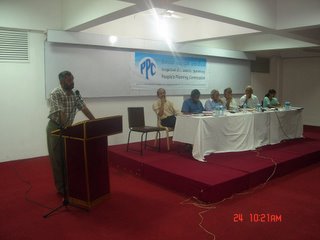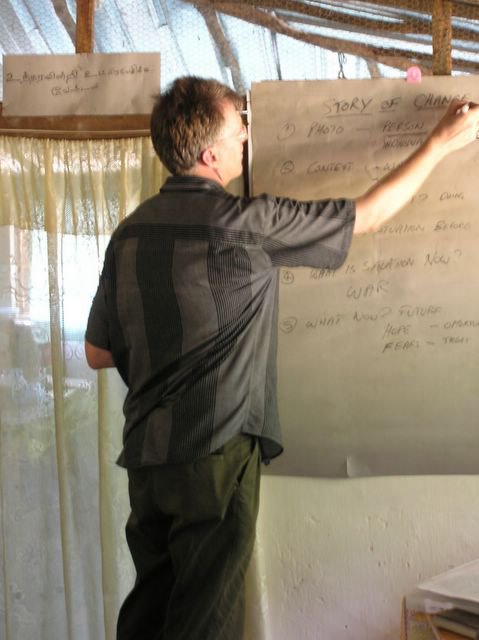Dear Friends
Really thank you! I was only able to read your mail around 10 pm June 6th . That was the time I was finally able to sit and read through emails. I was in and out for the whole day for very a important reason.
I was really disappointed having the experiences around injustices and very few even care those who try do some work for justice.
Just I want to share my day………
Yesterday, June 5th 2006, we received news about a girl who had died, that morning, in the Negombo prison due to asthma.
Sugandhini, aged 26, from
Jaffna, was a Tamil and had been on her way to Europe when she was deported from
Amman, Jordan, back to Sri lanka on the 31
st January 2006. Since then she had been in the Negombo prison together with another 400 detainees being held on similar cases.
Sugandhini had suffered from asthma for a long time, according to her relatives so her parents had tried several times to get bail but each time it was rejected. Earlier morning on June 5th, according to her friends, she was in her prison cell screaming and begging for help. She continued for nearly 3 hours, her two cell mates also made knocking noises on the cell windows yet no officer came.
Then finally around 4.20 am she was admitted to the Negombo hospital but according to the doctors there they said it was too late, they couldn’t do anything, she was pronounced dead.
Sugandhini’s mother and here relatives came from Jaffna this morning for the postmortem. It’s really sad that none of her relatives could speak The Sinhala language and the doctor couldn’t speak Tamil. But still there must be an inquiry. It was really good that I and our Tamil edition coordinator were available and volunteered to translate.
After the postmortem the body was brought to a funeral parlor in Negombo town and around 10pm was taken to Jaffna.
Since 10am we were fully engaged on this issue.
We actually heared, in the funeral parlor, that some RS 25000 had been given in payments for the officers from the police to the prison. This was according to the relatives. As a Sinhalese I really felt ashamed and just cannot believe how these persons can do such inhuman practices to such people.
According to them the payments were, for the special vehicle to transport the body to Jaffna RS 30,000.00, for the funeral palor RS 45000.00 but then bribes of RS 25,000.00
What a world?
I was just thinking whether I should share some very personal things ….. During the course of all these journeys today my motor bike stopped. It had run out of petrol. I had only RS 40 in my pocket which is not enough to fill the tank with petrol. Then Sahaj, our Muslim friend, offered some money which solved the problem.
During the day there had been no time to even have lunch but around 4pm we went to a hotel, in the Muslim area of Negombo, just to have tea. We then saw a few people reading our Tamil news paper. Our friend approach the people reading the paper and asked about the newspaper not saying that we had any link with it. They said they very much appreciated it and even directed us where to buy one. We went to the shop they had directed us to but no more papers! All were sold.
Then with all these feeling and tiredness sat on the chair in front of the computer to read emails then I so your mail.
That’s why in the very beginning that I wrote Really thanks.
I feel free now, the time is 4 am on June 7th .
In solidarity















